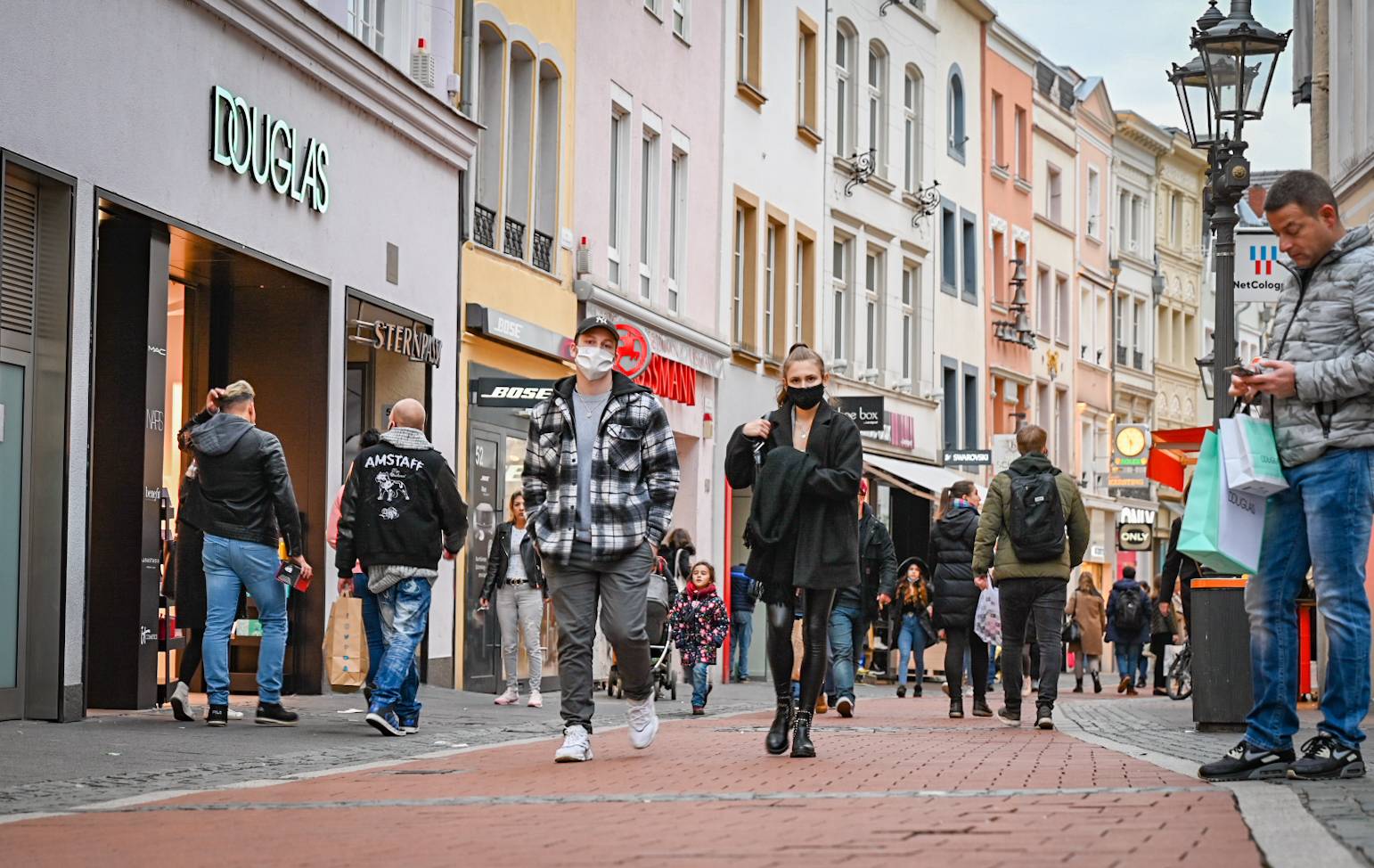Safe shopping is possible Exner makes proposal for hygiene officers in Bonn shops
A bit of normality could return to everyday life in the next few weeks. Martin Exner, former head of the Institute for Hygiene and Public Health at Bonn University, explains what retailers need to consider.
‘Pre-corona life’ is expected to gradually return in the coming weeks and bring a bit of normality back to everyday life: Hairdressers will reopen, and with a stable 7-day incidence rate, retail businesses, museums and galleries will follow suit, and the federal and state governments are continuing to work on a secure strategy for the restaurant and hotel industry. But despite the long-awaited relaxations of the rules, many are afraid that opening up will increase their personal risk of infection. Especially in shops, where many people from different households often meet each other in a confined space. This is a concern not only for customers, but often also for the staff.
“We have to defy corona. But we can only do that if we all stick to the rules,” says Martin Exner, former head of the Institute for Hygiene and Public Health at Bonn University. On behalf of the German Retail Association (HDE), he has investigated the strategies that the retail sector can use to help prevent and control corona infections. The results show that the hygiene concepts implemented so far are effective. "In the past months, the German retail sector has proven that shopping is safe even in a pandemic and that it can contribute to prevention," the report states. But there should be no let-up, he says. On the contrary. "Especially with regard to the mutations, the continuously updated hygiene concepts must not only be meticulously adhered to, but also adjusted again and again," Exner demands. The infection rate among employees of larger retail companies, including food stores, is demonstrably unremarkable. As for customers, no outbreaks or clusters in the retail sector have been reported so far, according to the study.
For Exner, there is no alternative to correctly wearing medical masks and strictly adhering to social distancing rules. In addition, he suggests that one employee per company (or a team in larger businesses), should be trained as a ‘hygiene officer’. After taking an appropriate fast-track course at an association or in a hospital, the hygiene offer would be the contact person for their colleagues. In addition, the hygiene officer must ensure that everyone strictly adheres to the applicable rules.
According to the specialist in hygiene and environmental medicine, this employee should also be fully aware of the procedures in the event of an infection. “Panic is not appropriate. That’s why it is important to have someone on site who acts calmly and with a level head,” says Exner, explaining his proposal. Regular control and monitoring of the ventilation concept would also be part of the hygiene officer’s duties.
For Exner, keeping a distance is still the order of the day. “It doesn't help if at the store entrance it says how many customers will be admitted and then the people stand close together. We have to increase the self-competence and personal responsibility of the individual," he insists. This applies to both the customers and the service providers. In addition to the vaccination strategy, he believes strict adherence to hygiene rules is the key to combating the pandemic. “Wear your mask properly, keep your distance, pay attention to hygiene, and ventilate rooms - there is no alternative to these rules,” Exner says. "And," the hygiene expert adds, "if there is a sanitiser at the entrance of a shop please make use of this," he appeals. This is another effective form of protection in addition to regular hand washing.
Based on this report, there is now no doubt for the Retail Association that the shops will be allowed to reopen. "In the past months, the retail sector has proven that fighting the pandemic and opening shops are not a contradiction. The hygiene concepts in stores work excellently", said Stefan Genth, General Manager of the Association. This is also demonstrated in a current study by the Professional Association for Trade and Merchandise Logistics (BGHW) and the Federal Institute for Occupational Safety and Health (BAuA). According to this study, Genth says, there was no increased incidence of infection among workers in the sector. "Clear proof that safe shopping is possible in the retail sector," he says.
"How the situation develops is in our hands. Everyone should act on their own responsibility," Exner appeals. He recommends acting “as if your counterpart is infected. Then everyone will consistently implement the prevailing rules.”
(Original text: Gabriele Immenkeppel, Translation: Caroline Kusch)



